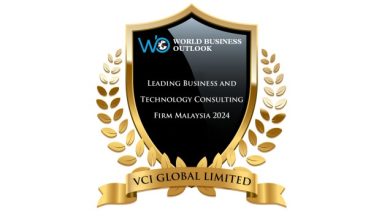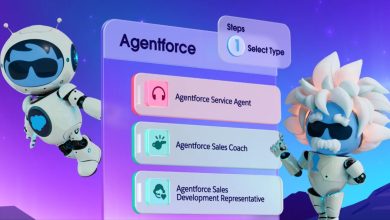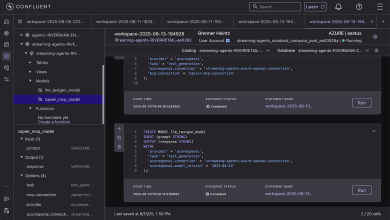Singapore’s AI Drive Hits Critical Juncture as Tariffs, Talent Gaps, and Low Policy Familiarity Weighing Down Innovation—Deel
Tariff Pressures and Skill Shortages Impact the Lion City's Digital Transformation Despite Strong Government Backing

Singapore’s journey towards Artificial Intelligence (AI) leadership is at a crossroads, as new research commissioned by Deel, the all-in-one payroll and HR platform for global teams, has uncovered a complex reality slowing the city-state’s digital ambition. The survey, conducted by Milieu Insight in April 2025, captured responses from 350 Singapore-based business leaders and managers across both small and medium-sized enterprises (SMEs) and large enterprises.
While many Singapore businesses recognise the potential of AI to drive efficiency and productivity, adoption remains cautious and uneven, and is increasingly impacted by global economic turbulence and a persistent shortage of skilled talent.
Economic Pressures Are Forcing Difficult Decisions in Singapore
The latest survey by Deel reveals that more than four in five local companies (81%) have experienced negative impacts from global tariffs, with more than half (56%) facing increased operational costs. These economic pressures are not merely financial abstractions—respondents indicated they are the cause of difficult workforce decisions, including wage freezes (60%), reduced hiring (48%), and retrenchments (43%). Notably, wage pressures are felt most acutely by businesses at advanced stages of AI adoption (86%), highlighting that even digital frontrunners are not immune to the current economic climate.
In this climate, every percentage point in enterprise savings, efficiency and margin resilience matters—areas where AI tools have successfully demonstrated their ability to drive improvements. Businesses deploying AI report increased efficiency and productivity (71%), operational optimisation (61%), and cost savings (50%). Notably, nearly one in three Singaporean businesses (31%) have accelerated their AI or automation efforts in response to global disruptions—a clear sign that a significant segment of the market is actively leveraging technology to adapt to challenging conditions.
“Singapore’s businesses are being squeezed from both sides by rising costs due to global economic uncertainty and the need to invest in innovation to stay ahead,” said Nick Catino, Global Head of Policy at Deel, who is spoke at this week’s AI Summit. “Even those leading AI adoption are feeling the strain, showing that economic headwinds are impacting all levels of digital transformation. This highlights a key challenge: while AI adoption can help with productivity and cost savings, it is not a silver-bullet for macroeconomic pressures. Many businesses remain cautious, either due to the upfront investment required or uncertainty about long-term returns, meaning these benefits remain out of reach for the majority who have yet to adopt AI at scale.”
Talent Scarcity and Skill Gaps Are the Bottlenecks to Achieving AI Ambitions
Despite Singapore’s reputation as a digital trailblazer, the survey finds that 68% of businesses are still in the early phases of AI adoption. Enterprises are making more progress than SMEs, as 43% of enterprises have reached the intermediate stage of AI adoption, compared to only 12% of SMEs.
Part of the challenge is due to a shortage of AI talent. Nearly half (47%) of respondents say the local AI talent pool is insufficient to meet business needs, with high salary expectations (51%), limited career development opportunities (50%), and skills mismatches (47%) cited as major recruitment hurdles. The challenge is even more pronounced among survey respondents who have yet to embark on AI adoption, with 3 in 5 organisations expressing concern over the lack of expertise.
To address immediate skills shortages, 62% of businesses are open to hiring talent from abroad, recognising that international expertise can not only fill urgent gaps but also play a pivotal role in transferring advanced knowledge and best practices to local teams. However, for Singapore to fully benefit from this influx of global talent, businesses must be proactive in creating pathways for effective knowledge transfer and upskilling within their local workforce. Currently, only 2 in 10 (20%) of Singaporean businesses have allocated a dedicated budget to reskill their workforce.
“According to our survey, talent remains the single biggest barrier to scaling AI,” added Catino. “Cross-border hiring and remote work offer Singapore businesses access to global expertise, but this expertise must be harnessed to empower and elevate local teams. By intentionally facilitating knowledge transfer, organisations can build a more resilient, future-ready workforce and ensure that the benefits of global hiring are felt across the entire Singaporean talent ecosystem.”
Government Support Is Crucial, but Engagement with Initiatives Is Limited
Singapore’s government has set ambitious plans for AI, with robust strategies and frameworks in place to drive adoption. However, the survey reveals a disconnect between what businesses say they need and their actual engagement with existing government initiatives.
The majority of survey respondents (92%) view government support as crucial for AI adoption with financial support (42%), talent development and upskilling (26%), and technical or advisory support (15%) cited as their top support needs.
Another concern businesses have when it comes to AI is government regulations. But while 57% of survey respondents said they want stronger regulatory guardrails, actual engagement with existing government proposals and frameworks remains limited. A mere 5% said they are actively engaging with Singapore’s National AI Strategy (NAIS 2.0), and 95% of respondents said they are unfamiliar or only mildly familiar with Singapore’s AI governance framework. This gap is particularly stark given the increasing complexity and risks associated with AI deployment.
A Call for Strategic Action in Singapore
The data highlights both the urgency and the complexity of the challenge, and AI is seen as a solution to economic shocks, yet barriers persist that prevent its widespread, effective adoption.
Catino concluded: “With economic uncertainty and tariff pressures mounting, Singaporean businesses should ensure AI investments deliver tangible results in productivity, efficiency and margin resilience. The path forward requires a strategic approach—carefully evaluating whether to overhaul existing systems or leverage trusted AI solutions from vendors, and investing in talent development to future-proof operations.”
As Singapore navigates global economic headwinds, the findings underscore the importance of aligning policy, talent and technology to sustain its digital leadership. Only by bridging these gaps can Singapore fully realise the promise of AI for its businesses and workforce.




